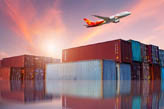Understanding the Role of International Logistics in Modern Supply Chain Management
In today’s globalized world, international logistics has become a cornerstone of modern supply chain management. As businesses operate across borders, the ability to efficiently transport goods, manage inventory, and navigate customs regulations becomes critical. International logistics encompasses a wide range of services, from container shipping and warehousing to customs clearance and warehousing solutions. These services ensure that products move seamlessly across international boundaries, minimizing delays and maximizing efficiency.
One of the key strengths of international logistics is its ability to handle the complexities of global trade. Whether it’s shipping goods from one country to another or managing inventory across multiple locations, international logistics providers use advanced technology and industry expertise to optimize every step of the process. From picking up goods at the port to delivering them to the final customer, international logistics ensures that every transaction is smooth and reliable.
In addition to facilitating cross-border trade, international logistics plays a vital role in supporting global supply chain resilience. By providing secure and reliable transportation options, international logistics helps businesses maintain their competitive edge in an increasingly dynamic market. With a growing emphasis on sustainability and efficiency, international logistics providers are also investing in innovative technologies, such as real-time tracking and predictive analytics, to further enhance the value of their services.
In conclusion, international logistics is more than just a set of services; it is a strategic partner in the global supply chain. By offering expertise in transportation, warehousing, and customs clearance, international logistics ensures that businesses can operate with confidence and efficiency, no matter where they are in the world. As the world continues to rely on international logistics, its role in shaping the future of global trade will only grow more significant.
